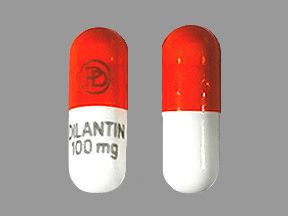 If you or someone you love is taking Dilantin and has experienced a Dilantin skin reaction, knowing some important information about the nature of the skin reaction could save a life.
If you or someone you love is taking Dilantin and has experienced a Dilantin skin reaction, knowing some important information about the nature of the skin reaction could save a life.
Dilantin Background
Dilantin (also known, its generic form, as phenytoin) is the most commonly prescribed antiepileptic drug for adults, and is manufactured and sold by Pfizer Inc. Dilantin also works to stabilize moods, and is generally prescribed for the treatment of bipolar disorder.
A fairly common Dilantin skin reaction is a Dilantin rash, which is a simple drug rash that is relatively mild in nature. Symptoms like these are fairly normal, and are not in and of themselves cause for major concern. A Dilantin drug rash will usually go away on its own fairly quickly and harmlessly.
However, Dilantin Stevens Johnson Syndrome (SJS) is a condition that begins looking like a drug rash but quickly progresses into something much more severe and serious, as well as potentially life-threatening.
Patients who develop a Dilantin skin rash should be extremely cautious. A Dilantin skin rash is most likely harmless, but wariness of these symptoms is highly encouraged so that if a patient develops Dilantin SJS or TEN symptoms, patients will seek medical treatment immediately.
Dilantin Stevens Johnson Syndrome (Dilantin SJS)
Stevens-Johnson Syndrome is an allergic reaction that causes the epidermis, or the top layer of skin, to develop severe and painful blisters. In cases of Dilantin SJS, this blistering and eventual peeling usually occurs just a few weeks after using Dilantin but can occur after long term use of the drug.
It may begin as a simple Dilantin rash, but quickly become more severe and painful. If your Dilantin rash is painful or begins to blister or peel, seek medical help before it can become more severe.
These blistering rashes can lead to intense pain, eye problems, secondary skin infection (known as cellulitis), and/or damage to internal organs. In most cases of Dilantin SJS, patients permanently suffer from significant scarring and permanent disfigurement even after they are healed.
Because the symptoms of Dilantin SJS are similar to symptoms of burns, SJS patients are often treated in the hospital burn unit.
It is important that people recognize SJS symptoms and seek medical treatment as soon as possible, because SJS is a life-threatening condition. SJS symptoms include:
- Facial swelling
- Tongue swelling
- Hives
- Skin pain
- a red or purple Dilantin skin rash, spreading within hours to days
- Blisters on skin, mouth, nose, and/or eyes
- Shedding of skin
The more severe form of SJS is called TEN, which stands for Toxic Epidermal Necrolysis. While patients with SJS are covered with severe, blistering rashes on 30 percent or less of their skin, patients diagnosed with TEN have these painful blisters on more than 30 percent of their body.
TEN has a higher mortality rate than SJS – approximately 40 percent of TEN diagnoses result in fatalities. Both SJS and TEN should be treated immediately.
While not all cases of Dilantin SJS and Dilantin TEN are fatal, they do have lasting harmful effects. These conditions can lead to major eye problems, internal organ damage, and permanent skin damage.
Some surviving SJS and TEN patients require major skin grafting to properly heal. Cases of SJS and TEN can result in recovery periods from days to months.
Dilantin’s packaging has included boxed warnings about the risks of SJS since at least 2011, and even includes the potential risk of Toxic Epidermal Necrolysis (TEN). TEN is a more advanced, severe, and dangerous form of SJS.
Dilantin SJS Lawsuits
Patients who have suffered from Dilantin Stevens Johnson Syndrome sometimes file Dilantin SJS lawsuits against Pfizer Inc. for failing to adequately warn them of the potential for such severe side effects. If you have suffered from Dilantin SJS or Dilantin TEN, you may have cause for filing a Dilantin SJS lawsuit.
Injured patients and their families are currently filing Dilantin SJS lawsuits, alleging that Pfizer Inc., Dilantin’s manufacturer, failed to adequately warn consumers and the medical community of the dangerous and potentially fatal risks of taking Dilantin.
These plaintiffs claim to have developed either SJS or TEN as a direct result of ingesting Dilantin without the proper warning.
If you or someone you know has suffered from a Dilantin skin reaction such as SJS or TEN, you may have reason to file a Dilantin SJS lawsuit to recover damages for your medical, financial, and emotional suffering.
Do YOU have a legal claim? Fill out the form on this page now for a free, immediate, and confidential case evaluation. The SJS attorneys who work with Top Class Actions will contact you if you qualify to let you know if an individual lawsuit or Dilantin class action lawsuit is best for you. [In general, Dilantin lawsuits are filed individually by each plaintiff and are not class actions.] Hurry — statutes of limitations may apply.
ATTORNEY ADVERTISING
Top Class Actions is a Proud Member of the American Bar Association
LEGAL INFORMATION IS NOT LEGAL ADVICE
Top Class Actions Legal Statement
©2008 – 2026 Top Class Actions® LLC
Various Trademarks held by their respective owners
This website is not intended for viewing or usage by European Union citizens.
Get Help – It’s Free
Help for Victims of Stevens Johnson Syndrome
If you or a loved one were diagnosed with Stevens Johnson Syndrome (SJS) or toxic epidermal necrolysis (TEN) after taking a prescribed or over-the-counter medication, you may be eligible to take legal action against the drug’s manufacturer. Filing an SJS lawsuit or class action lawsuit may help you obtain compensation for medical bills, pain and suffering, and other damages. Obtain a free and confidential review of your case by filling out the form below.
An attorney will contact you if you qualify to discuss the details of your potential case at no charge to you.
Oops! We could not locate your form.












